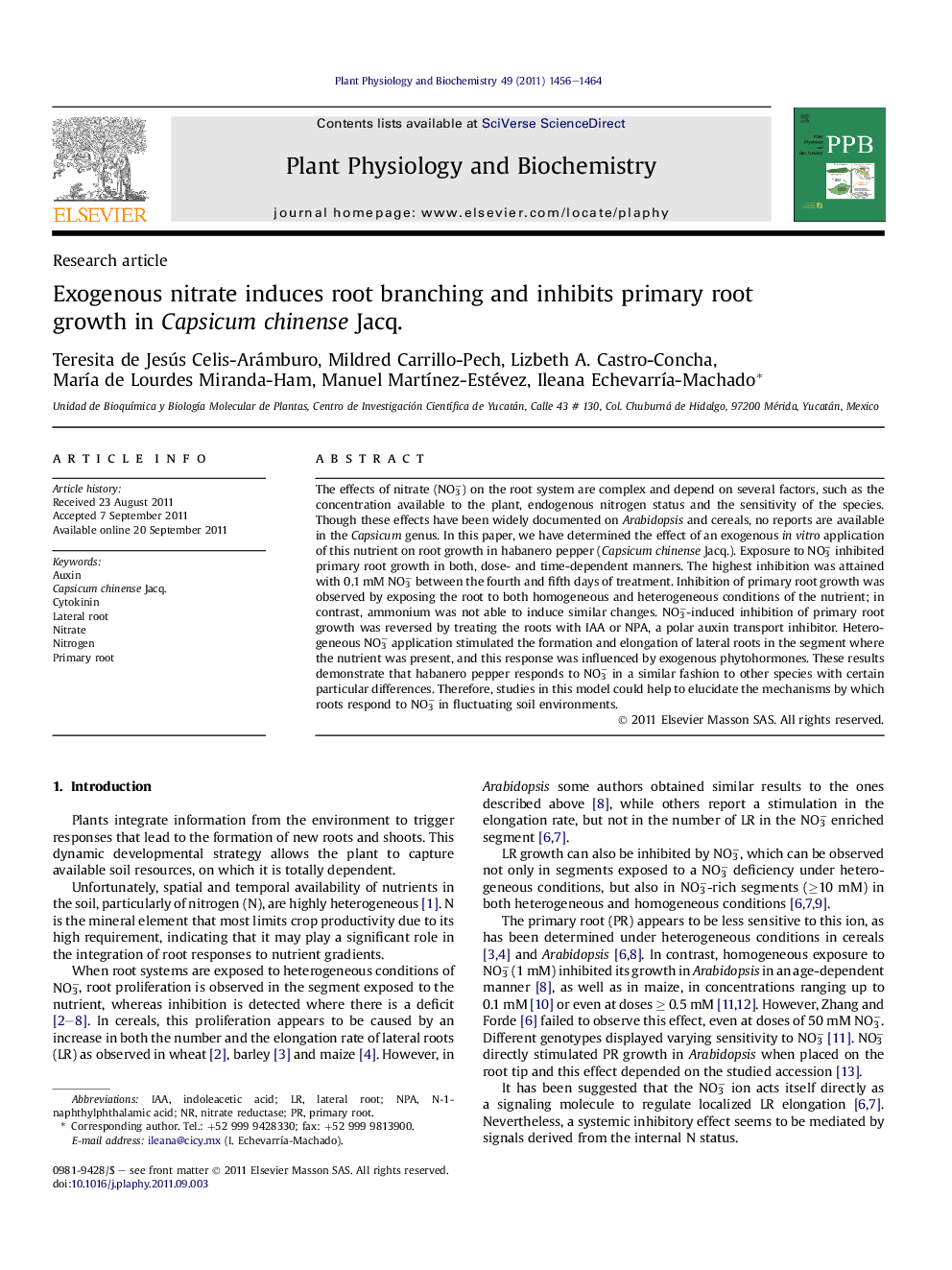| Article ID | Journal | Published Year | Pages | File Type |
|---|---|---|---|---|
| 2016380 | Plant Physiology and Biochemistry | 2011 | 9 Pages |
The effects of nitrate (NO3−) on the root system are complex and depend on several factors, such as the concentration available to the plant, endogenous nitrogen status and the sensitivity of the species. Though these effects have been widely documented on Arabidopsis and cereals, no reports are available in the Capsicum genus. In this paper, we have determined the effect of an exogenous in vitro application of this nutrient on root growth in habanero pepper (Capsicum chinense Jacq.). Exposure to NO3− inhibited primary root growth in both, dose- and time-dependent manners. The highest inhibition was attained with 0.1 mM NO3− between the fourth and fifth days of treatment. Inhibition of primary root growth was observed by exposing the root to both homogeneous and heterogeneous conditions of the nutrient; in contrast, ammonium was not able to induce similar changes. NO3−-induced inhibition of primary root growth was reversed by treating the roots with IAA or NPA, a polar auxin transport inhibitor. Heterogeneous NO3− application stimulated the formation and elongation of lateral roots in the segment where the nutrient was present, and this response was influenced by exogenous phytohormones. These results demonstrate that habanero pepper responds to NO3− in a similar fashion to other species with certain particular differences. Therefore, studies in this model could help to elucidate the mechanisms by which roots respond to NO3− in fluctuating soil environments.
► Habanero pepper primary root is highly sensitive to nitrate, but not to ammonium. ► LR proliferation in response to nitrate may occur, but it is not a general response. ► Stimulation of LR formation by nitrate also was observed in presence of tungstate. ► Phytohormone roles on nitrate response are suggested for the first time in pepper.
